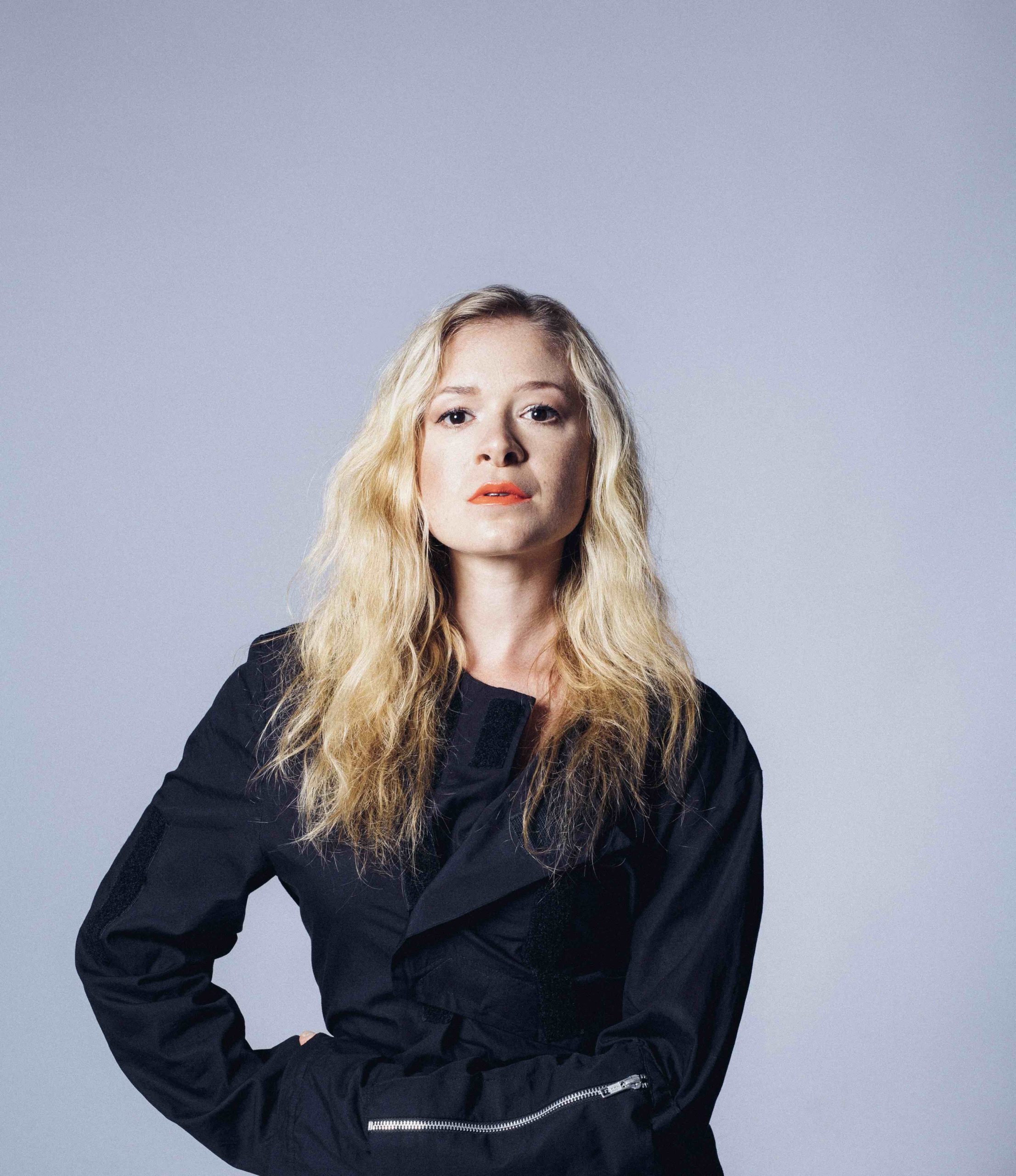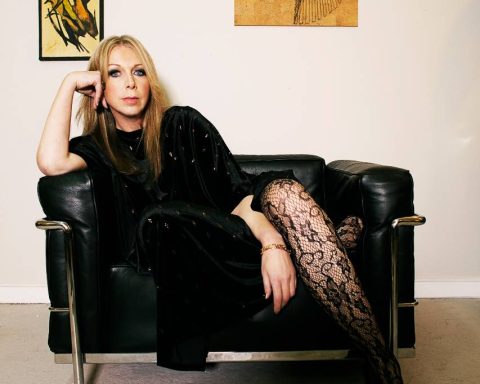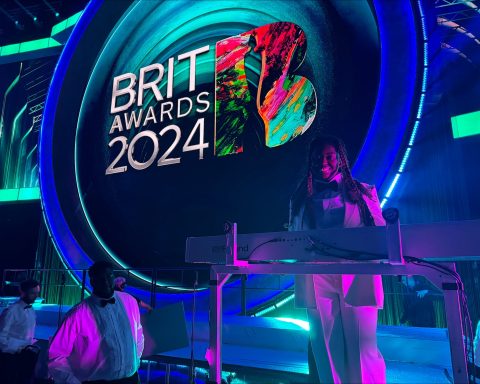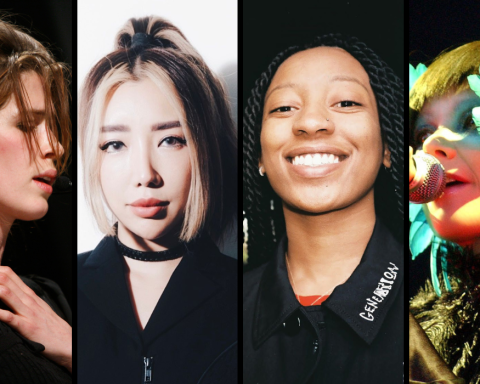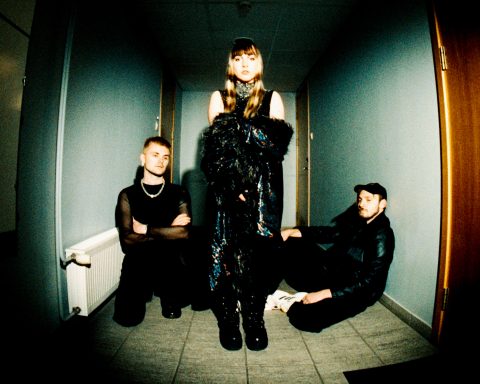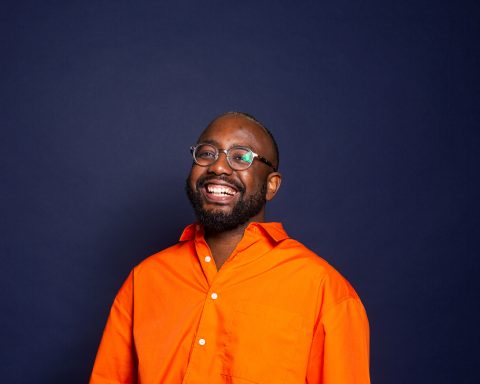Aisling Brouwer spent her younger years accompanying her family between several European countries. Now, based in Berlin, the prolific artist/composer has a career that mirrors her eclectic childhood. Brouwer alternates between scoring award-winning films and playing in AVAWAVES with violinist Anna Phoebe. She spoke with us from her stylish, immaculate space at Riverside Studios, where she’s a resident composer. Brouwer discusses her upbringing, finishing an album during a pandemic, and how the MC-707 reinvigorates her recording sessions.
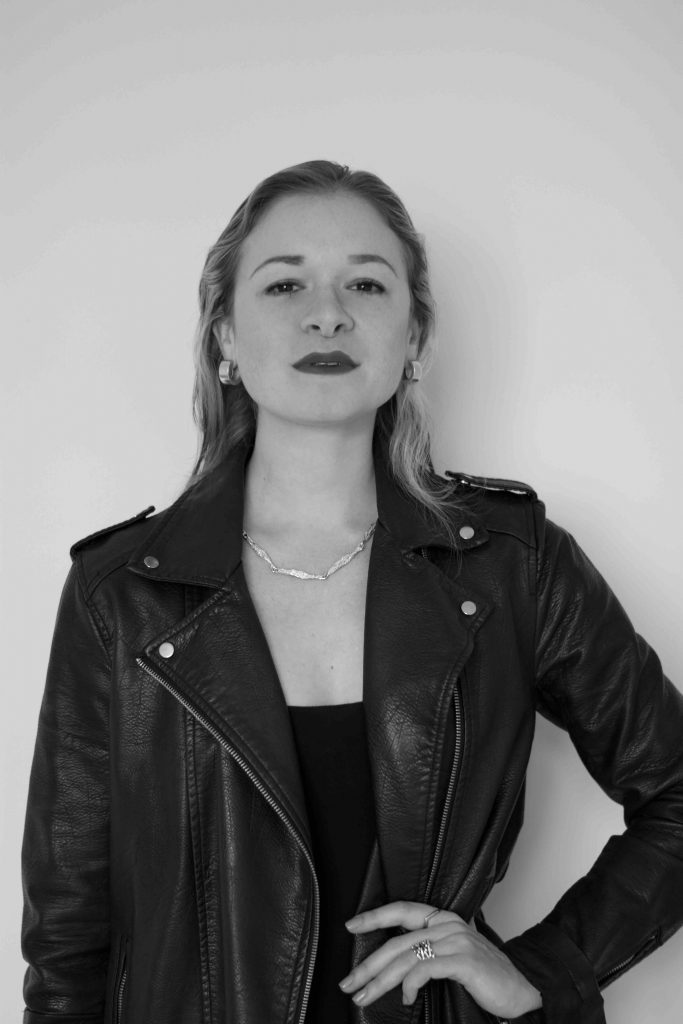
Global Citizen
You have a unique background. Where did you grow up?
My mom is Irish, and my dad is Dutch. I was born in Belgium and lived there till I was six when we moved to Holland. My mom was Irish, so we always spoke English at home. When I was 18, I wanted to get out of Holland and experience something else. I moved for a gap year to do music in the UK. It was with the understanding that I’d get it out of my system, then come back and study law.
What was the earliest music you recall hearing?
It would have to be Bach. My parents were super into music. We’d go from Dire Straits to Pink Floyd to Mozart to jazz in our house. I started playing piano quite young, around five or six. My dad was a violinist, so we’d play duets.
Did any artists have a big influence on your musical development?
If anything, I was quite different from my peers. I was very into instrumental music. As a teenager, that was a bit weird when everyone was going to rock concerts. I was always quite into electronic and the house scene and stuff. It wasn’t necessarily artists—it was soundtrack albums where I found myself. What enticed me is that it’s never direct. Everyone hears their own story.
"I knew with the score I could go nowhere near punk music. You cannot recreate that—especially being from a different generation."
Scoring a Riot
Tell us about scoring Rubika Shah’s BIFA-nominated feature White Riot. Were you a fan of any of the groups?
One hundred percent, it was an amazing film to score, and impossible to not have listened to those bands. The thing about punk music is it is so raw and so unique and such an honest genre of music.
Your music is a great contrast with the tones of punk.
I kind of knew with the score I could go nowhere near punk music. There’s so much passion and tension and frustration in punk. You can’t recreate that—especially being from a different generation. It’s not something you can do a pastiche of. Also, I think for an audience member, it would too much. You need ups and downs.
The score for White Riot came out as an Original Soundtrack. Does it take on another life without visuals?
When scoring a film, you’re not the center of attention, just supporting the project in any possible way. It has to be subtle and complementary with a lot of respect for the other creatives in the process. After detaching from it, I thought, “Is anyone going to listen to a drone for three minutes?” Also, White Riot as a score is particularly dark, gritty, and full of tension.
"I saw this woman on stage and her playing and boldness mesmerized me. We met our match, so to speak."
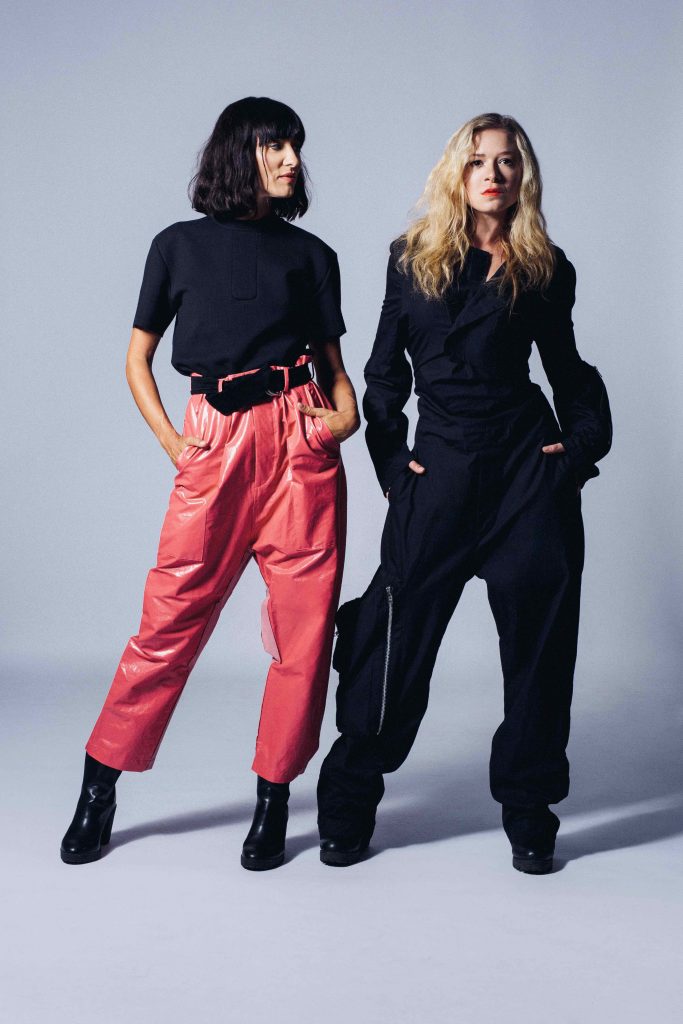
Riding Waves as a Duo
How did your band AVAWAVES with Anna Phoebe come together?
Randomly, I was working in London and went to an industry event at the Indian Embassy. I was writing music for a TV series at the time, and Anna was performing. Then, I saw this woman on stage and her playing and boldness mesmerized me.
I’d never collaborated before, but we got to talking. It happened organically. I went down to her place by the seaside, and we sat down in her living room where there were a piano and a violin. We met our match, so to speak.
“Chrysalis,” the first single from AVAWAVES’ second album, drops March 31st. What can we expect from the follow-up?
“Chrysalis” is a piece we started together just before the first lockdown. But it only came into its own as we progressed through the surreal events of 2020. The track brings together our two different worlds—the electronic sounds of Berlin and the cinematic scenery of the UK coastline—to join forces in the AVA universe. We’re in a very different place than when we wrote Waves. Still, rather than being too reflective, this album is all about embracing transformation. It’s about moving forward and stepping into the light after a period of darkness.
A Cinematic Sound
AVAWAVES is sometimes described as neo-classical. Does that term feel accurate?
We tend to like the term “cinematic” more because we also both work with visuals and film. People on the electronic side of the spectrum hear our stuff, and go, “Oh, that’s classical.” But when classical people hear it, they’re like, “That is not classical.” We’re very much in-between.
Anna has an incredibly diverse and impressive touring background, and I came from studio work and film scores. All of it gels together. At the same time, a lot of our songs follow traditional songwriting structures.
How is it working with legendary label One Little Independent, home to Björk, Cody Chesnut, and Ásgeir?
What we love about them is that the variety of artists on the label is immense. They’re open-minded and give us so much freedom. It’s a privilege to love your label because you hear people complaining about their situation. We are so happy there. Writing the second album, they didn’t prescribe at all. They were like, “Do your thing and let us know when it’s done.”
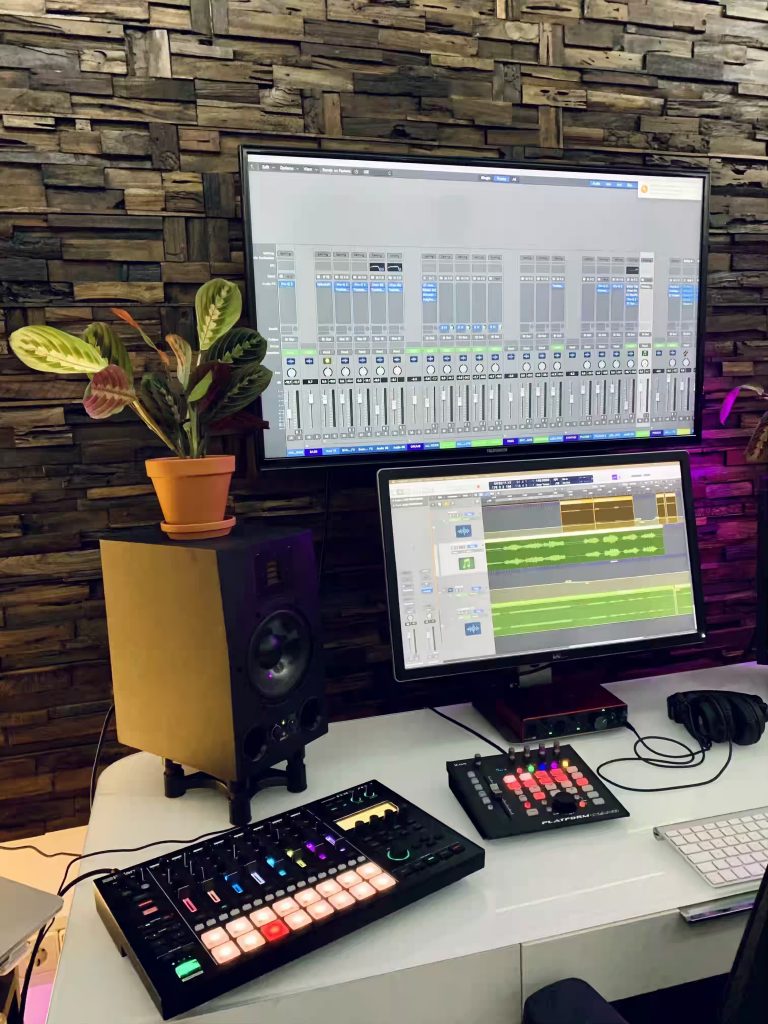
MC-707 Inspiration
Coming from your background, what was your experience with the MC-707 like?
Mostly, I’ve always been keys and synth-focused. What was amazing to me with the MC-707 is you can load in samples. I’ve also been heavily into field recording more as a side thing. Anywhere I go, I’m always noticing sounds. With the 707, I was given a way to incorporate all these recordings into my scores and create with them.
Also, it helps me feel like an instrumentalist again. During super-long days staring at screens, the tactile moments with instruments are invaluable.
How has it contributed to your output and creative approach?
We just finished mixing what’s going to be the first single from AVAWAVES’ new album. Something was missing. I switched the 707 on and added eight new instruments in the background. Going through the sounds, I thought, “Could that fit? Does that feel like a frequency range that isn’t quite like popping yet?”
Then you perform it and you’ve got it. You don’t need to wait for instruments to load or start tweaking stuff on your screen. You’re performing into the track.
"People on the electronic side of the spectrum hear our stuff, and go, 'Oh, that's classical.' We're very much in-between."
From Icon to Collaborator
What was it like working with Nitin Sawhney on his upcoming album Immigrants?
Nitin is a very multi-dimensional person. He’s not only an artist but also very political and a film composer as well. He asked us to collaborate on a track for his new album, so we went to his studio in Brixton (London) and had a jam and it was amazing.
It’s an honor because he was a genuine fan of our first album. I grew up listening to him, so to me, it was surreal that he’d be a fan of our music. He’s become a great friend and collaborator.
Like most musicians, live performance has been out of the equation for a year. How has this changed your life?
I’m lucky that I’ve always had this composing element to my work. Writing for film and TV carried on for a while, the stuff that was in post-production. But, I’ve been lucky. I’m currently scoring my next feature film and have a few other projects lined up after that.
The New Normal
Have you found ways to adapt—both in terms of income and connecting with music lovers?
Initially, we were trying to replicate the life we had before with technology. Anna and I recorded sessions and tried to figure out how to sync up different elements and play at the same time. It became frustrating. Eventually, we settled into the idea of simply writing the next album remotely.
What was the recording process like?
Last January or February I managed to get a week with Anna before everything happened. We ended up getting loads of these skeletons of ideas. Remotely—her in the UK and me here—we opened them back up. We’ve got a fifty-fifty partnership in everything. She mixes, I mix. She produces, I produce. We take it in turns and always work quite well like that.
"Initially, we were trying to replicate the life we had before. Eventually, we settled into simply writing the next album."
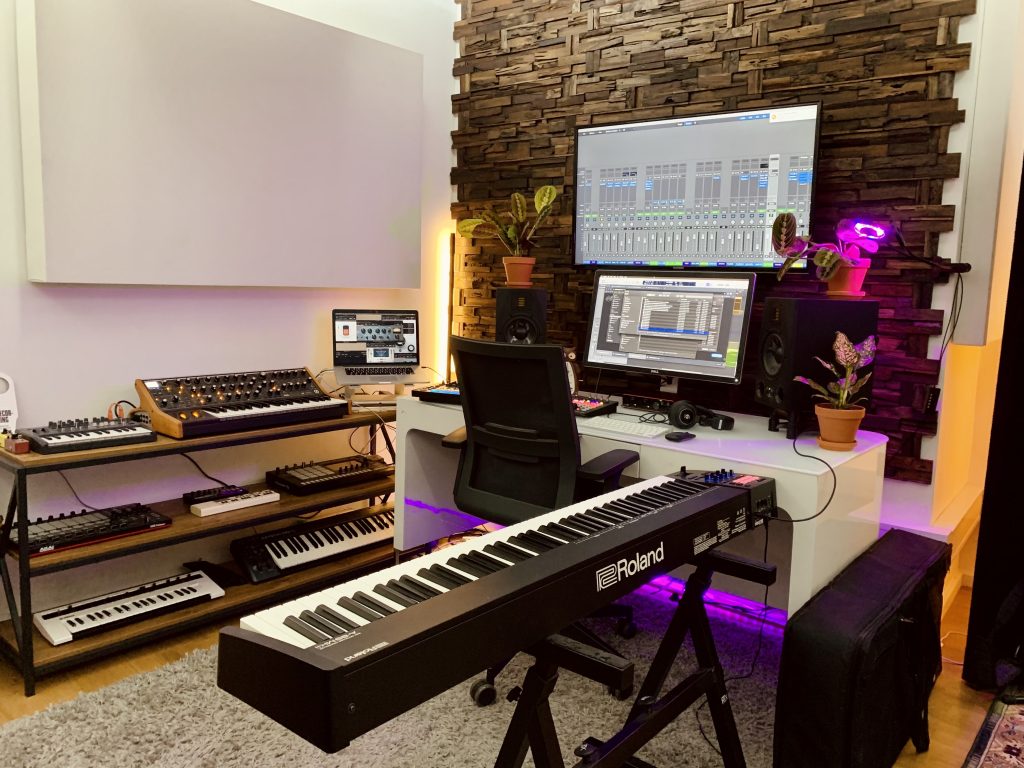
But I have to say, the mixing stage is an absolute pain. There are points where you’re listening back, and you need to be in the same room. But we got there and now we’re in the final stages
You’re a resident composer at Riverside Studios in Berlin. What does that role entail and how did it come about?
I’m part of a complex which has 20 or 30 studios. There are around 50 producers here now. We have techno producers, people who write for hip-hop, pop, films, video games, and VR. It’s an artist community.
There was one silver lining about last year. Everyone used to be touring so it was hard to sync up. You’d see each other in the hallway, but there were loads of people you wouldn’t know. This year, we were all stuck here, so it made for a comforting environment. You didn’t feel like you were alone.
